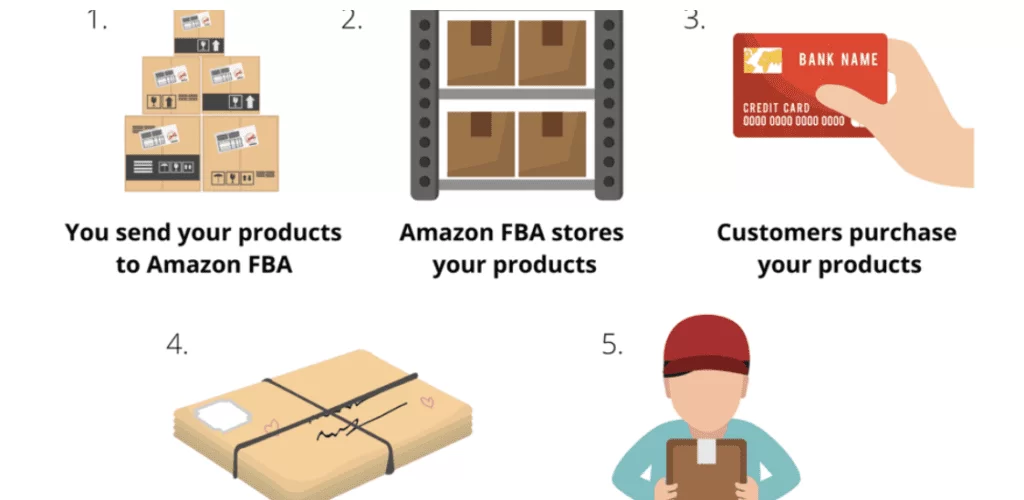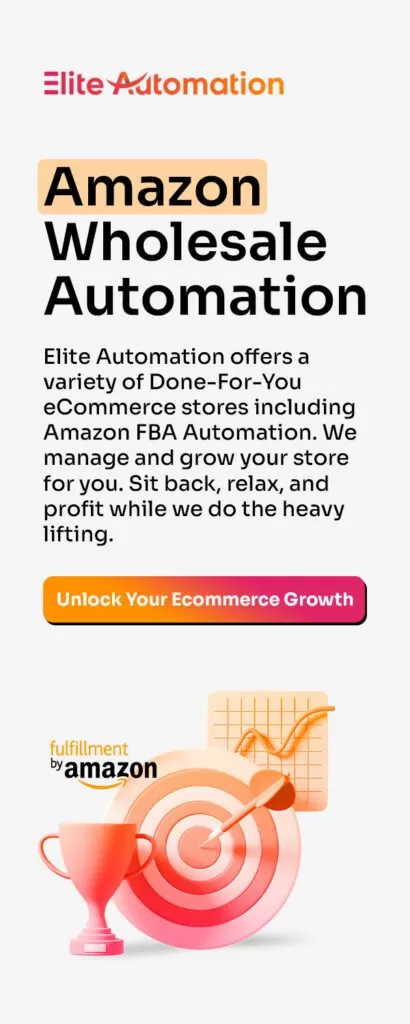Remaining updated with the latest changes in the world of Amazon is vital for online sellers who continuously optimize their strategies & explore international markets. The competition for sales keeps increasing, so it’s important to be in the know. One noteworthy aspect to consider is the changes in sales fees that can significantly impact sellers. With Amazon regularly reviewing its rates and making necessary adjustments, staying informed about any changes is crucial in order to maintain a profitable Amazon business.
There are various types of fees that may be subject to change, including order fulfillment fees, referral fees, and additional charges for specialized services like storage or order processing. It’s important for sellers to manage these changes properly as they can affect their budget and potentially lead to increased costs. One advantageous program offered by Amazon is their FBA, or Fulfillment by Amazon, program. This program allows sellers to store their products in Amazon’s fulfillment centers & offers several benefits.
By participating in the FBA program, sellers gain access to Amazon’s customer service & logistics network, enjoy free shipping for orders within the U.S., benefit from reduced shipping rates for international orders, experience faster delivery times, and have simplified returns processing. Moreover, sellers can enhance brand awareness and achieve higher search result rankings by utilizing the FBA program, as their products will be listed at the top.
Since the start of January 2023, Amazon FBA sellers have noted a continuous increase in prices, particularly relating to FBA storage fees. Starting on April 1, 2023, sellers with higher relative storage cube capacity than their recent weekly sales will face an overstock penalty. This penalty is imposed on sellers whose inventory or sales levels have worsened. In addition, Amazon will apply higher surcharges to inventory stored between 271-365 days, effective from April 15, 2023.
Another change coming into effect on April 15, 2023, is the introduction of a surcharge on items held in stock for 180-270 days. However, it’s important to note that this surcharge does not apply to products in apparel, shoes, bags, jewelry, and watches categories. Additionally, Amazon has implemented a new FBA capacity limit to optimize inventory management. They have combined restocking and quarterly storage limits into one monthly metric known as the FBA capacity limit, which determines the maximum inventory that can be stored in FBA centers.
Amazon Fulfillment Fees, commonly known as FBA Fulfillment Fees, are the charges levied on sellers for utilizing Amazon’s services to fulfill customer orders. This service encompasses various tasks like picking, packing, shipping goods, providing customer support, and managing returns. The fulfillment fee is calculated on a per-unit basis, depending on the products sold.
For most large standard & oversize items, the shipping weight used to calculate the fulfillment fee is determined by the greater of the unit’s actual weight or its dimensional weight. FBA fulfillment fees (non-apparel) range from as low as $3.22 for small standard items to a minimum of $158.49 for special oversize non-apparel items. The specific Amazon seller fees can be found in the detailed table provided.

When it comes to apparel, Amazon charges an FBA fulfillment fee ranging from $3.34 for small standard items to a minimum of $158.49 for special oversize apparel items. Again, an exact breakdown of the Amazon seller fees can be referred to in the detailed table.
For sellers dealing with dangerous goods, special handling during packing & shipping is required, leading to higher costs. Due to this, the fees associated with dangerous goods range from a minimum of $4.19 to a starting point of $179.28, depending on the shipping weight of the product. If you want to learn more about FBA Fulfillment Fees, visit Amazon Seller Central for comprehensive information & guidelines.
In summary, staying updated on the latest changes in Amazon seller news is essential for online sellers to thrive in the face of increasing competition. Sellers must be aware of changes in sales fees and ensure proper management to maintain profitability. By leveraging the benefits of Amazon’s FBA program, such as access to their customer service, logistics network, and improved search result rankings, sellers can enhance their brand and enjoy a smoother overall experience.
It’s important to note that changes in FBA storage fees have been implemented, including surcharges for overstock and increased fees for inventory stored beyond specific periods. Understanding and adhering to these changes is crucial for sellers to effectively manage their inventory. Paying attention to FBA fulfillment fees & pricing structures ensures sellers have a clear understanding of the costs associated with fulfilling their customer orders.
For sellers in the apparel category, specific FBA fulfillment fees are applicable, while sellers involved with dangerous goods should be aware of the higher costs associated with special handling. Amazon Seller Central provides all the necessary information and resources for sellers to stay informed about FBA Fulfillment Fees & make informed decisions to grow their business.
As the global Amazon marketplace continues to evolve, online sellers must adapt their strategies, keeping an eye on changes to stay at the forefront. By following industry news and utilizing the tools & programs available, sellers can navigate the competitive landscape with confidence and drive their success forward. Embracing the resources provided by Amazon, such as the FBA program, is a key step towards optimizing inventory management, improving customer experiences, and ultimately thriving in the expanding online marketplace.

By paying attention to the trends & changes impacting Amazon sellers in 2023, online sellers can proactively adjust their strategies & ensure their businesses remain profitable. Adapting to the evolving landscape of the online marketplace and utilizing the resources offered, such as the FBA program, will be essential for sellers looking to succeed in the global Amazon ecosystem.
With the continuous growth of online retail & increased competition among sellers, staying informed about changes in Amazon seller news is no longer optional but rather a necessity for success. As the marketplace evolves, being aware of emerging trends and adapting to the ever-changing environment will be key for online sellers to maintain profitability and achieve their business goals.
To get started with an Automated Amazon FBA business, click here to schedule a free discovery call.


